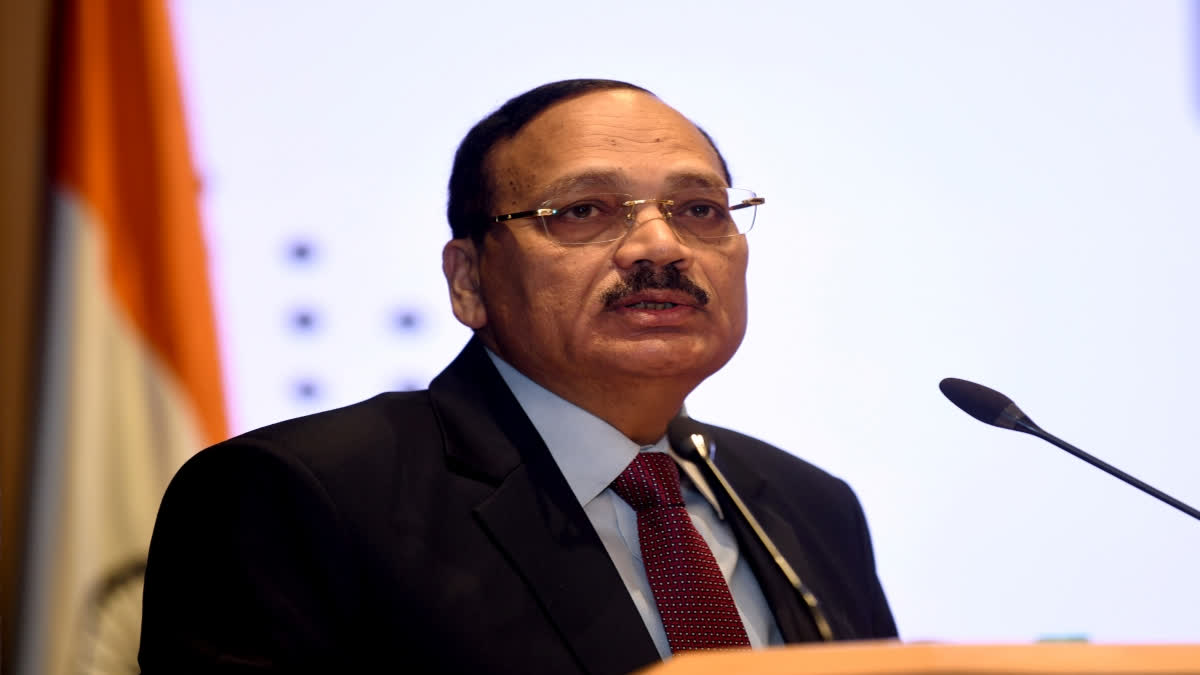New Delhi: Supreme Court judge Justice Surya Kant, one of the two judges on the bench, which granted bail to Delhi Chief Minister Arvind Kejriwal in the Delhi excise policy case, on Friday made it clear that Kejriwal’s arrest did not suffer from procedural infirmity but “prolonged incarceration of an accused person pending trial amounts to unjust deprivation of personal liberty”.
A bench comprising justices Kant and Ujjal Bhuyan granted the relief to Kejriwal on a bail bond of Rs 10 lakh, and two sureties. The two judges’ concurred on granting bail to Kejriwal and authored separate judgments.
Justice Kant, in a judgment authored by him, said, “The basic principle is reiterated that the evolution of bail jurisprudence in the country underscores that issue of bail is liberty, justice. Developed jurisprudence of bail is integral to a society sensitized to the judicial process. The prolonged incarceration of an accused person pending trial amounts to unjust deprivation of personal liberty”.
The bench observed that the legislative policy of granting bail will meltdown where there is no likelihood of trial being completed in a reasonable time. “The courts invariably bent towards liberty with a flexible approach towards an undertrial, save and except when the release of such a person is likely to shatter societal aspirations, derail the trial, or deface the very criminal justice system, which is integral to rule of law”, said Justice Kant.
Justice Kant said the FIR was registered in August 2022, and since then a chargesheet and four supplementary chargesheets have been filed, and the fourth supplementary chargesheet was filed on July 29, and the trial court has taken cognisance of it.
He said additionally, 17 accused persons have been named, 224 individuals have been identified as witnesses, and documents both physical and digital have been submitted. Justice Kant said these factors suggest that completion of the trial is unlikely to occur in the immediate future.
The bench did not accept CBI’s contention regarding the tampering of the evidence and influencing the witnesses, if Kejriwal were to be released on bail.
“The appellant has satisfied the requisite triple condition for the grant of bail”, said Justice Kant. However, Justice Kant made it clear that Kejriwal’s arrest did not suffer from any procedural infirmity.
Justice Kant said there does not impede arresting a person already in custody. "We have noted that CBI in their application recorded reasons as to why they deemed it necessary. There is no violation of Section 41A (3) of the Code of Criminal Procedure," said Justice Kant.
“The criminal appeal as regards challenging the legality of arrest, we have declined to interfere. As regards criminal appeal, where he has been denied bail. We have allowed that appeal. The Delhi High Court order is set aside. The appellant is directed to be released on bail in connection with the CBI FIR. Subject to furnishing bail bonds of Rs 10 Lakh with two sureties…. ”, said Justice Kant.
Justice Kant said Kejriwal will not make any public comments on the merits of the CBI’s case, as the matter is subjudice before the trial court and this condition is necessary to dissuade a recent tendency of building up a self-serving narrative on public platforms.
Justice Kant said the terms and conditions imposed by the co-ordinate bench, which includes that CM cannot visit his office and also cannot sign files, in the Enforcement Directorate’s matter shall apply in this case also. “The appellant should remain present before the trial court on every date of hearing unless granted exemption. And, he shall fully cooperate with the trial court,” said Justice Kant.
Read More:



